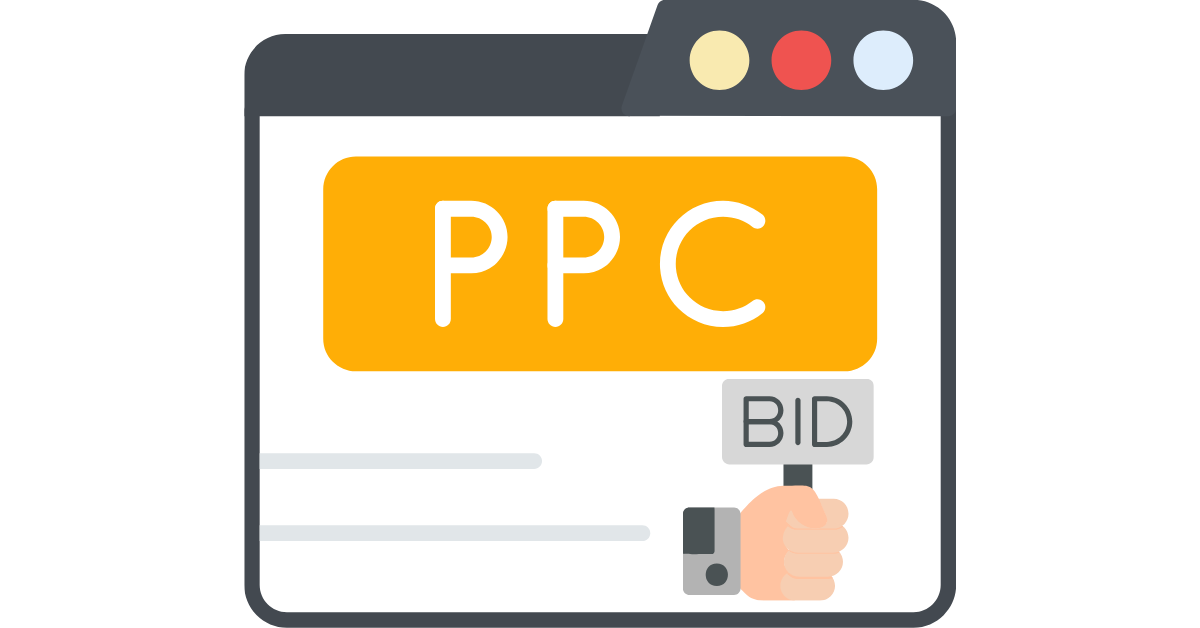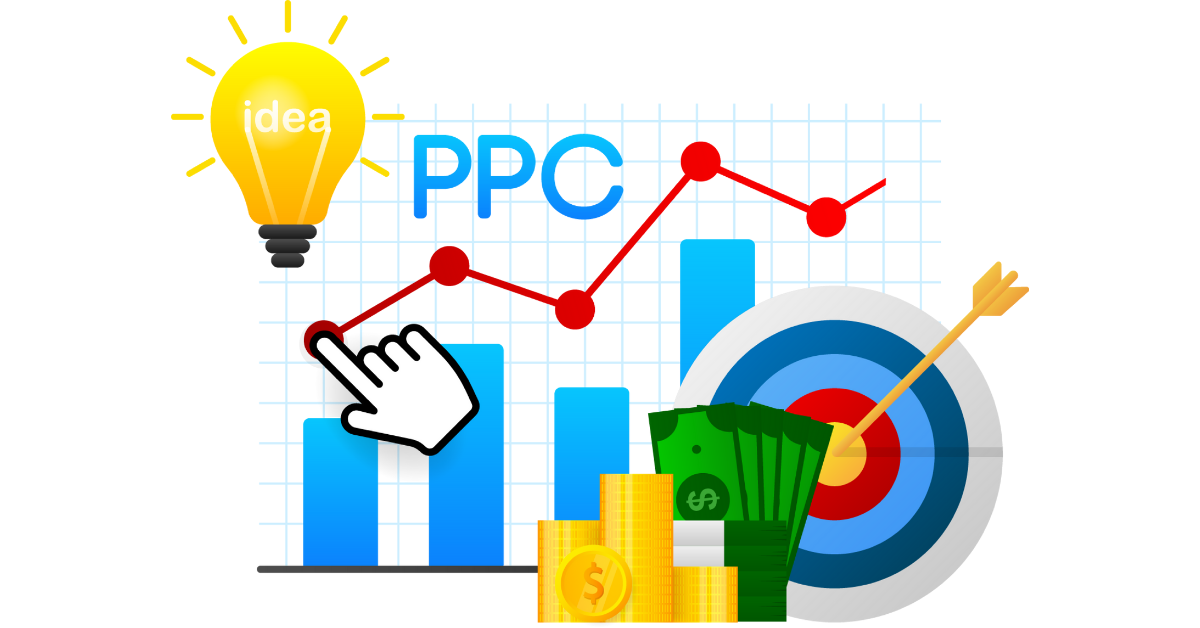Are you struggling to find the sweet spot in PPC bid management, where your investment translates into tangible campaign performance without draining your budget? Effective bid management is critical for the success of your pay-per-click (PPC) campaigns, and mastering it can mean the difference between a robust ROI and wasted ad spend. In this guide, we dive into strategies, best practices, and tools designed to optimize your bids, stretch your dollar further, and ensure your ads reach the right audience at the right cost.
Key takeaways
- Effective PPC bid management involves optimizing ads to achieve the highest ROI while preventing budget overspending, through strategies like adjusting keyword bids, monitoring performance metrics, and controlling budget limits.
- Successful PPC bid strategies require a balance between manual and automated bidding, informed by data analytics, along with optimizing ad groups and leveraging advanced software tools to refine bid management PPC.
- PPC bid management should be integrated with overall digital marketing efforts and responsive to multi-channel insights, ensuring a consistent brand message and strategy that maximizes impact across platforms.
What is PPC bid management?

PPC bid management is a strategic approach used to regulate your ad expenditure and enhance ad placement in PPC campaigns. But how does this translate into practical application? It involves a tactical dance of:
- Lowering or increasing keyword bids to secure an optimal position for your ads on SEO eCommerce service pages
- Monitoring and adjusting bids based on performance metrics such as click-through rates and conversion rates
- Conducting keyword research to identify high-performing keywords and bid on them strategically
- Analyzing competitor bids and adjusting your own bids accordingly
- Setting budget caps to ensure you don’t overspend on your PPC campaigns.
The ultimate aim? To get the highest possible return on your PPC ads, while preserving your budget to avoid missing out on potential conversions.
The key to successful PPC bid management lies in finding the sweet spot between paying enough to get your ads seen by the right audience, but not so much that you blow your budget on a single campaign. It’s a delicate balancing act, but with the right strategy and tools, you can master PPC bid management and improve your PPC campaigns to new heights of success.
PPC bid strategy for maximum impact

Developing an effective PPC bid strategy consists of:
- Careful planning
- Clear goal setting
- Alignment with business objectives
- The flexibility to test and adapt your strategy based on performance data.
Setting the right bid amount
Grasping your target cost-per-acquisition (CPA) is the initial move in establishing a successful PPC bid. This metric represents your desired spend per conversion and is calculated based on your current acquisition costs.
But how do you decide on a maximum cost-per-click (CPC) bid? It’s often best to start with a figure you’re comfortable with, which can then be adjusted based on the performance and data accumulated during your campaign. The optimal bid amount is heavily influenced by the expected value derived from an ad click – ideally, this should be less than the potential revenue generated from a conversion.
Understanding bid adjustments
Bid adjustments significantly alter the game. They’re percentage multipliers that enable you to automatically increase or decrease your bids under specific conditions, such as device type or user location.
For instance, device bid adjustments can be set between -100% (excluding that device) and +900%, adjusting the frequency with which your ads appear on different devices. You can also optimize ad exposure and ad spending by using location bid adjustments to target more desired areas or increase bids during peak times when shoppers are ready to convert.
However, they require cautious management due to their multiplicative nature and should be scheduled based on data analysis to align with your campaign’s performance trends.
Balancing manual and automated bidding
Manual CPC bidding offers total control over your campaign budget and keyword expenditure, whereas automated bidding uses algorithms for bid optimization aligned with your campaign objectives. But how do you strike the right balance between manual and automated bidding? Start with manual bidding to gain experience and collect sufficient data. This ensures you have control over bid adjustments based on performance insights.
Once you’ve gathered enough data, you can transition to automated bidding strategies, suitable for large accounts. However, these strategies require careful monitoring to avoid potential issues with delays and aggressive bid changes. Remember, effective bid management considers the full conversion path since some keywords may influence different stages of the customer’s purchase cycle.
Optimizing ad groups for enhanced bid management

Ad groups significantly contribute to improving bid management PCC. They should be structured around a specific theme or product type, operating one level below campaigns in your PPC account hierarchy. A well-structured ad group contains:
- Roughly 20 keywords, leading to more precise targeting and improved ad relevance
- The right keyword match types and negative keywords within each ad group target the most relevant audience, enhancing ad performance and controlling costs
- The ability to exercise granular control by setting individual bids at the ad group or keyword level.
Automated bid rules further optimize bids by ensuring optimal traffic for top-performing ad groups and cost efficiency for competitive terms.
Using keyword bids to drive PPC success

Your keyword bids act as a potent mechanism propelling your PPC success. Start by extracting relevant keywords from your website’s landing pages, considering potential search queries from the customer’s perspective, and implementing search engine optimization strategies.
Group these keywords into relevant ad groups based on the following:
- Brand terms
- Generic terms
- Related terms
- Competitor terms.
Adjust individual keyword bids based on their relevance and performance metrics, and use negative keywords to exclude irrelevant terms.
Finally, cater your ad copy to keyword groups for effective targeting. Remember, PPC bid management decisions should always be data-driven, based on the relevance of keywords to the likelihood of visitors completing actions such as:
- Form submissions on landing pages
- Making a purchase
- Signing up for a newsletter
- Requesting more information.
Advanced techniques in PPC bid management
Ready to take your PPC bid management to the next level? Advanced techniques offer a powerful way to optimize your campaigns further, including:
- Using third-party tools
- Implementing custom rule-based bidding strategies
- Utilizing incremental cost-per-click
- Implementing cross-channel attribution models.
Utilizing PPC management software
PPC management software significantly transforms the way you manage PPC campaign operations, including PPC marketing. It lets you manage PPC campaigns in one place, streamlining the management of sponsored projects and helping avoid common pitfalls in campaign execution.
Features such as bid simulators and customizable reporting tools provide valuable estimates of potential campaign performance and clearly highlight campaign outcomes. Automated optimization capabilities, like customizable AdWords scripts, enhance PPC bid management by reducing manual labor while still allowing for strategic control. However, it’s crucial to understand the functionalities of PPC management tools to effectively utilize their capabilities and limitations.
Implementing bid management tools
Bid management tools boost efficiency for agencies responsible for large-scale PPC campaigns. They automate the process of monitoring, analyzing, and providing insights into vast amounts of keyword data.
PPC management software enhances account performance management, providing features for detailed monitoring and assisting in locating and addressing performance issues. Google Ads offers automated bidding strategies such as Target CPA and ROAS to adjust bids based on outcomes. However, advertisers must closely monitor and periodically adjust these automated bids to maintain alignment with marketing goals.
Bid management software includes:
- Custom alerts for deviations in key metrics
- Features for pausing ads or keywords when necessary
- Simplified process of campaign adjustments
- Finding optimal bid positions
- Portfolio and rule-based bidding
- Recommendations to adjust strategies based on data from varying date ranges.
Setting a bid cap can prevent overspending, but understanding the competitive landscape is essential to bid efficiently. If you lack historical data, smart bidding strategies may be less effective. For better bid management decisions, look at longer date ranges or aggregate data at higher campaign levels and integrate PPC bid management with digital marketing analytics.
The role of quality score in bid decisions
Quality Score, utilized by Google and Microsoft, serves as a health indicator impacting ad rank and CPCs. It combines:
- Expected click-through rate (CTR)
- Ad relevance
- Landing page experience
- Bid during the auction process.
Quality Score is affected by factors such as the landing page experience, including load time and content relevance, and ad relevance, which evaluates the match between the keyword, ad copy, and search query. While a high Quality Score can result in lower CPCs and improved ad positions, keywords with low Quality Scores may still drive a significant percentage of conversions if they are highly relevant.
It’s worth noting that while branded campaigns can enhance Quality Score by supplying the algorithm with high-converting terms, experts caution against solely relying on the Quality Score rating as it may not always align with success metrics.
Avoiding common pitfalls in PPC bid management
Steering through the world of PPC bid management brings about its own set of challenges. Common pitfalls such as adopting the wrong bidding strategy or mismatching bids and budgets can hamper your campaign success.
Correct budget allocation is essential for a successful PPC campaign. Both underspending and overspending can lead to suboptimal results. Here are some key factors to consider:
- Selecting the right keywords
- Using appropriate match types
- Understanding audience behaviors
- Covering all stages of the consumer funnel.
By focusing on these factors, you can target your audience accurately and efficiently to engage and convert potential customers.
Lastly, ongoing campaign management, including bid adjustments and keyword performance reviews, is key to avoiding unnecessary expenditure and improving PPC campaign effectiveness.
Enhancing campaign budgets with effective PPC bid management

PPC bid management plays a critical part in optimizing your campaign budget. By decreasing bids using bid modifiers for low-performing locations or times, and allocating funds towards efforts with the highest return on investment (ROI) such as mobile campaigns, you can make the most of your budget.
An ideal budget should allow approximately 10-20 clicks for conversion opportunities, and bid amounts should reflect the true value of a conversion to avoid losses, maintain positivity, and track ROI. PPC management software can aid in bid and budget adjustments, and PPC managers offer essential recommendations for spending, ultimately leaving the final decision to advertisers.
Effective PPC bid management capitalizes on enhancing campaigns by filling in gaps in organic reach and helping to secure premium ad placement for valuable keywords.
Integrating PPC bid management with overall digital marketing efforts
Your PPC bid management strategy should not function in isolation. It should be integrated with your overall digital marketing initiatives like content marketing, social media, and email marketing, to maintain a coherent strategy across channels. Marketers should ensure PPC bid management is responsive to insights from multiple marketing channels, using social media engagement or content performance trends to inform strategy adaptations.
Maintaining brand messaging and positioning consistency is crucial across PPC bid management and different digital marketing platforms. Manage PPC campaigns along with ongoing promotions and sales, it helps amplify reach and impact, creating a seamless marketing experience for customers.
Search ads on Bing Ads, Google Ads campaigns, and YouTube ads, are essential components of a comprehensive PPC strategy. These platforms offer unique advantages and opportunities for advertisers to reach their target audience. By leveraging these diverse channels, advertisers can create a well-rounded search campaign that maximizes visibility and drives performance.
Successful PPC bid management in action
Grasping the concept of PPC bid management is one aspect, witnessing its practical implementation is another. Let’s take a look at some real-world case studies that showcase how great examples of PPC bid management strategies implemented by PPC management services can lead to tangible business results.
Digilent switched to scandiweb after working with another marketing agency. They recognized the need for a fresh perspective and more sophisticated bid management techniques to stay competitive in the digital advertising space. The outcome of precisely targeted advertisements led to relevant traffic and an impressive +731% in revenue.
For the Aeropost PPC project, one of the methods implemented was bidding strategy optimization with a focus on maximizing conversion value and target return on ad spend for the marketplace accounts. As a result, the scandiweb PPC team successfully improved sales and customer numbers while enhancing the ROAS and reducing the CPA, just in time for the high-demand season. In the YOY comparison, ROAS saw an uplift of 31.44%, while revenue experienced a substantial surge, increasing by 144.61%.
Countless other businesses have witnessed remarkable growth by adopting the appropriate PPC practices.
Summary
In summary, mastering the art of PPC bid management can significantly enhance your digital marketing efforts. By understanding the mechanics of bidding, crafting a robust strategy, optimizing ad groups and keyword bids, and leveraging advanced techniques, you can take control of your ad spend, optimize your ad placements, and maximize your campaign’s effectiveness.
The journey doesn’t stop here. With ongoing management, careful monitoring, and continuous learning and adaptation, you can keep refining your PPC bid management strategy, driving better results, and achieving your business goals. Remember, every click counts, and with effective PPC bid management, you can make sure every click is a step toward success.
Frequently Asked Questions
What is PPC bid management?
PPC bid management involves strategically setting maximum ad spending to achieve specific goals. It entails adjusting keyword bids to optimize Google Ads budget and determine ad placement and cost per click.
How does PPC bidding work?
PPC bidding works by allowing online businesses to bid on specific keywords or keyword groups in order to secure ad space at the top of search results in a pay-per-click auction. This helps them to secure ad placement for important terms related to their business.
What is PPC brand bidding?
PPC brand bidding involves strategically bidding on branded keywords, like your own company’s name or your competitor’s brand names, to increase visibility and conversions.
How can bid adjustments enhance my PPC campaigns?
Bid adjustments can enhance your PPC campaigns by allowing you to automatically increase or decrease your bids under specific conditions, such as device type or user location, optimizing ad exposure and performance.
Interested in bid management? Get in touch with us, and our PPC team will help to implement effective bid management strategies tailored to your goals.



Share on: